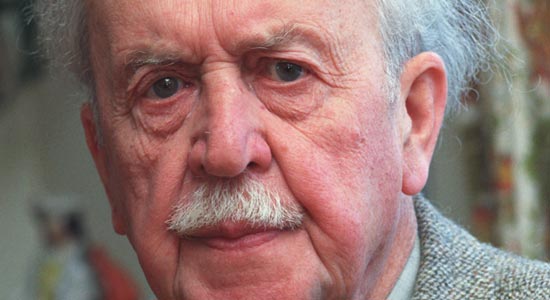Alasdair Roberts’ songs are difficult to digest. Like a large pill you can’t quite swallow, that lodges toward the back of the throat, they are dense, layered, poetic ballads coupled with a forcefully picked acoustic guitar, abrasively fragile vocals and a thick Scottish accent. His new self-titled album is not the kind of thing you put on while washing dishes. But it’s the kind of album you go back to again and again, trying to parse the lyrics, trying to understand why these songs grate at the base of your spine. Roberts will be guest editing magnetmagazine.com all week. Read our brand new feature on him.

Roberts: I thought I should choose something—an individual and/or and a particular piece of work—to represent Scotland’s rich Gaelic history. The sad fact is that I don’t speak Gaelic myself, although I find the language, the music, the culture all beautiful and hugely appealing; I suppose in part it’s the mystery of it that adds to that appeal—the sense of its foreignness to me as a non-Gaelic Scot of half-German parentage. Sorley MacLean was a major figure in Gaelic poetry (not to mention in Scottish, European and world poetry, more generally) of the 20th century. One thing that interests me about his work is that he’s definitely a modernist yet is also harking back to something very ancient. Of course, poetic modernism doesn’t necessarily imply a complete break from the literary past—consider the influence of the so-called “metaphysical” poets on Eliot, or of the Mabinogion on David Jones, or the mediaeval trouvère tradition on Pound. What’s different in MacLean’s case, I think, is that he has a genuine ancestral connection to an age-old Celtic culture of a heroic, bardic nature. Dàin Do Eimhir Agus Dàin Eile (or Poems To Eimhir And Other Poems) was his first published collection. It is a sequence of 48 poems, written throughout the 1930s and first published in 1943; broadly speaking they are “love poems,” but they also touch on contemporaneous European sociopolitical affairs and happenings such as the Spanish Civil War.
Video after the jump.
https://www.youtube.com/watch?v=Ow05S8JDdbk






